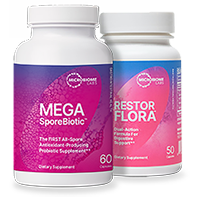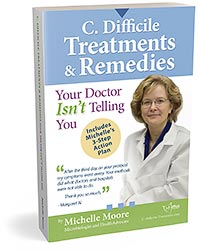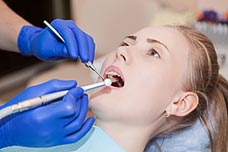 Most people don’t like going to the dentist, but this will make you think twice about your next visit. While you may expect to come home with a tooth ache, you don’t expect to wind up with a C. difficile infection.
Most people don’t like going to the dentist, but this will make you think twice about your next visit. While you may expect to come home with a tooth ache, you don’t expect to wind up with a C. difficile infection.
Antibiotic use is a leading cause of C. diff infections. Antibiotics also damage your protective gut flora and weaken your immune system. The Centers for Disease Control and Prevention (CDC) now admits that these drugs lead to antibiotic resistant superbug infections which can be difficult or impossible to treat.
So you don’t want to take antibiotics unless you absolutely have to. While a prescription from your doctor is the most common way to be prescribed antibiotics, a new report1 shows that dentists are a significant and overlooked source of antibiotic prescribing.
15% of C. diff. caused by dental procedures!
Alarmingly, this report shows that more than a third of dentists prescribe antibiotics excessively and improperly per the American Dental Association guidelines. And during the study period, of those who got C difficile from dental-prescribed antibiotics, one-third of their dental medical charts made no mention of receiving antibiotics from their dentist. This makes dental antibiotics a significant and often hidden risk for getting C. difficile.
The report suggests that many dentists are unaware of the updated recommendations on the proper use of antibiotics. Other studies back up the assertion. A 2015 survey2 by the Minnesota Department of Health found that less than half of dentists were concerned about antibiotic resistance, drug side effects or the risks of C. difficile infections caused by their prescribing decisions.
Tips to Reduce Your Risk
- Inform your doctor. There is an obvious disconnect between dental and medical care. Inform your primary doctor of any antibiotics or other medications prescribed by your dentist.
- Know your antibiotics. Some antibiotics are much more likely to cause C. diff. than others. You can reduce the risk of C. diff. by avoiding specific antibiotics with a known track record of causing the infection such as: Clindamycin, Ciprofloxacin (Cipro), Levaquin, Keflex and several others.
- Avoid antibiotics when possible. Ask if antibiotics are necessary. If so, ask if alternative antimicrobial remedies can be substituted. Many herbals are anti-bacterial like oregano essential oil, specialized garlic extracts and olive leaf, and they do not have the many negative side effects that antibiotics do.
- Visit holistic dentists. Traditional dentists are rarely open to or familiar with alternatives to antibiotics. But if you visit a holistic or “biological” dentist, then you’ll likely be offered other antimicrobial options, including ozone, colloidal silver, essential oils and herbal remedies.
- Maintain your immune system before and after dental procedures. The stronger your immune system, the lower the risk of infections from a dental procedure. Oral infections are often the first steps in other chronic diseases, including heart disease, diabetes and autoimmune diseases3. So keeping your immune system strong with an immune-boosting diet, adequate sleep, proper supplementation and daily probiotics is important.
- Reduce the side effects of antibiotics. If you do take antibiotics, know how to reduce their side effects in order to reduce the risk of C. difficile. Steps like probiotics, proper hydration and remedies to address drug side effects like stomach upset can be very helpful.
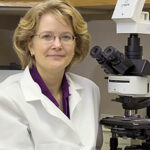
About the Author – Michelle Moore, BSc
Michelle Moore is a microbiologist, holistic health educator, and author of C. difficile Treatments & Remedies. With over 10 years of experience in pharmaceutical research and over 20 years in natural medicine, she helps people overcome C. difficile and other chronic infections naturally.
References
- 2017 IDWeek presentation, medicalxpress.com/news/2017-10-antibiotics-dental-procedures-linked-superbug.html
- Minnesota Department of Health, Antibiotic Resistance and Stewardship for Minnesota’s Dental Professional
- Systemic Diseases Caused by Oral Infection, Clin Microbiol Rev. 2000 Oct, Xiaojing Li et el
Photo credits: dental work © nazarets/fotolia.com



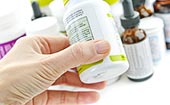

 Fill in the form below to get our C. diff. tips newsletter and your free report “10 Things You Need to Know to Overcome C. difficile”.
We value your Privacy. Your email will be kept strictly confidential & secured. See our
Fill in the form below to get our C. diff. tips newsletter and your free report “10 Things You Need to Know to Overcome C. difficile”.
We value your Privacy. Your email will be kept strictly confidential & secured. See our 